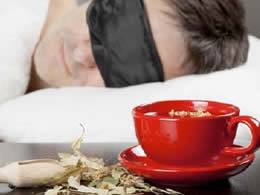Discover now all medicinal plants against stress. Anti stress plants. Herbal medicines and stress disorders.
What are Medicinal Plants?
Introduction about Medicinal Plants for Stress
Stress disorders are one of the most prevalent and highly comorbid psychiatric conditions. Since the past decade,
many herbal medicines have been used in people with stress and anxiety disorders. Due to the increasing popularity of
herbal medications majority of the patients are consulting herbalists, naturopaths, and other healers, in addition to physicians.
Who's using Medicinal Plants for Stress
A study reveals that 44% of psychiatric patients with stress disorders had used herbal medicine (mainly for psychiatric purposes) during the previous 12months. There is however, a limited data regarding the benefits and liability of herbal remedies. There have been few reports of serious adverse effects from these medications and by and large these medications have been considered safe and effective. This article reviews the literature on various herbal medications in the treatment of stress disorders as well as anxiety in general.
Mechanism of Action of Herbal Medications
The primary mechanism of action involves modulation of neuronal communication, via specific plant metabolites binding to neurotransmitter/neuromodulator receptors and via alteration of neurotransmitter synthesis and general function. Other mechanisms involve stimulating or sedating CNS activity, and regulating or supporting the healthy function of endocrine system.
Stress: Best 6 plants effective anti-stress
Piper Methysticum (Kava)
Description: Kava had a statically significant anxiolytic activity on
Hamilton Anxiety Scale (HAMA) compared with placebo (95%) but one trial demonstrated that kava was effective in short term treatment of stress. A meta analysis revealed a similar conclusions.
Passiflora Incarnata (Passion Flower)
Description: It is a benzodiazepine receptor partial agonist and causes GABA-system mediated anxiolysis. A 4 week RCT using passionflower extract on patients with GAD (n=36) showed that passion flower was as effective asoxazepan (30 mg/day) in reducing stress and it had less number of side effects.
Valeriana Spp. (Valerian)
Description: Felter and Lioyd demonstrated that species of valerian officinal is and edulis have been used in traditional American and European medicine as a soporific and to treat various nervous system disorders. A large 8 week internet based RCT (n=391) using a valerian (6.4 valarenic acids/day) placebo, kava(300 mg kavalactones/day) + placebo or double placebo was conducted to determine the efficacy in treating co morbid anxiety and insomnia.
Scutellaria Lateriflora (Skullcap)
Description: A double blind placebo controlled cross over study of healthy individuals (n=19) revealed that skullcap dose-dependently reduced symptoms of anxiety and tension after acute administration compared to that with control.
Mellissa Officinalis (Lemon Balm)
Description: It is shown to cause MAO-inhibition. In a 4 week open, multicenter study in children less than 12 years(n=918) suffering from restlessness and nervous dyskoimes is a combination of valerian and lemon balm preparation (2x2 tablets/day of 160 mg valerian root dry extract (4-5:1) and 80mg lemon balm leaf dry extract (4-6:1) was given. The primary symptoms of dyssomnia and restlessness were reduced from ‘moderate/severe’ to ‘mild’ or ‘absent’ in most of the children with 70.4% of the patients with restlessness improving. Both parents and investigators assessed efficacy as ‘very good’ or ‘good’ (65.5% and 67.7%, respectively)
Eschzoltzia California (California Poppy)
Description: It is used by the Native Americans and Ecletic physicians as a sedative, analgesic and anxiolytic. Authors demonstrated that California poppy possess an affinity with benzodiazepine receptors with flumazenil (a benzodiazepine receptor antagonist) suppressing these sedative and anxiolytic effects.
Cymbopogan citratus (Lemon grass)
Description: In 50 participants lemongrass infusion was evaluated for hypnotic and anxiolytic activity it was found that there was no difference between lemon grass and placebo.
Centella asciatica (Gotu Kola)
Description: It is used in ayurvedic and traditional pacific medicine for the treatment of anxiety and depression. In a double blind placebo controlled study, 40 healthy participants were randomly assigned to receive either a single 12 g orally administered dose of gotu kola or placebo, it was found that gotu kola significantly attenuated peak ASR amplitude 30 and 60 min after treatment indicating anxiolytic activity in humans.
Withania Somnifera (Ashwagandha)
Description: It is classified as rasayana in ayurvedic medicine and it is used to enhance mental and physical performance. It is widely used in the western countries in various nervous system disorders. In an animal study it was observed the adaptogenic behavior of ashwagandha in stress – inducing procedure, via the attenuation of stress related parameters (Cortisol levels, mental depression, sexual dysfunction).
Gingko Biloba (Maidenhair)
Description: A 4 weeks RCT using 480 mg or 240 mg per day of Gingko Biloba revealed that there was marked reduction in stress and anxiety by Gingko Biloba as compared to placebo in adults with GAD or adjustment disorder with anxious mood.
Conclusion on Anti-Stress Plants
Most herbal medications may serve as alternatives to traditional anxiolytics
Herbal medications in psychiatry are still under researched. The present review looked at variou sherbal preparations used in anxiety. The preparations excluding kava have been underused and need further clinical trials including randomized double blind clinical evidence and direct comparisons with anxiolytic drugs to help us understand their efficacy.
Most herbal medications may serve as alternatives to traditional anxiolytics in patients who do not tolerate them as they have a favorable safety profile and are free from major side effects. There is also a need for research of herbal medication in the management of various subtypes of anxiety disorders like post traumatic stress disorder and obsessive compulsive disorder. The use of these medications in various age groups and diverse clinical populations is warranted.
Share this page with your friends:
Help your friends and family to know themselves better. Share this page, they will appreciate it... and all thanks to you! 100% stress advices and free tests :-)
